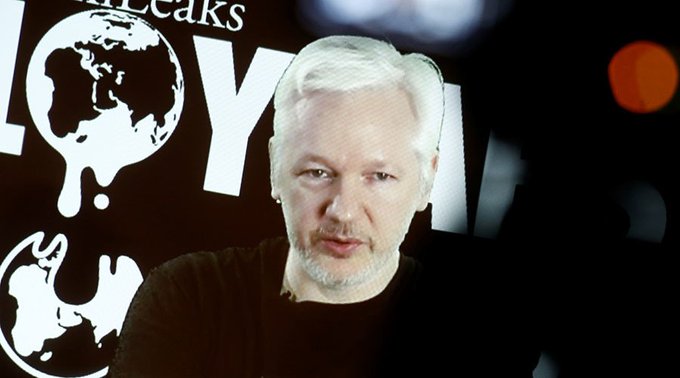On Washington's hacking hysteria – what would Freud say?
John Wight has written for newspapers and websites across the world, including the Independent, Morning Star, Huffington Post, Counterpunch, London Progressive Journal, and Foreign Policy Journal. He is also a regular commentator on RT and BBC Radio. John is currently working on a book exploring the role of the West in the Arab Spring. You can follow him on Twitter @JohnWight1

The Democratic Party and its supporters within the Washington political establishment are having serious problems grappling with the concept of democracy.
Since losing the US presidential election, they’ve been floundering around trying to blame Russia, WikiLeaks, Jill Stein, their own Electoral College, indeed everyone and everything except the people who decided to cast their vote in favor of Donald Trump rather than Hillary Clinton on November 11.
‘Clinton quite effective at discrediting herself, doesn’t need Putin’s help’ - ex CIA analyst (Op-Edge) on.rt.com/7zpv
In this endeavor, they are enjoying the support of the CIA and, they claim, the sixteen other agencies that make up the country’s bloated intelligence community. Digressing for a moment here, what do those seventeen separate intelligence agencies actually do? Whatever their role is, it hasn’t had much to do with fighting terrorism, what with the rise of ISIS and Al-Qaeda in recent years. Perhaps they’ve been too busy interfering in the internal affairs of other countries to fight terrorism.
If we’re going by the historical record, then interfering in other countries’ internal affairs is precisely what they’ve been up to. Their ignoble history in this respect was documented back in October, in the pages of the Washington Post no less, with reporter Ishaan Tharoor reminding us of Washington’s role when it comes to “interfering [with] and sometimes interrupting the workings of democracies elsewhere.”
As he writes:“It [the US] has occupied and intervened militarily in a whole swath of countries in the Caribbean and Latin America and fomented coups against democratically elected populists.The most infamous episodes include the ousting of Iranian Prime Minister Mohammed Mossadegh in 1953 – whose government was replaced by an authoritarian monarchy favourable to Washington – the removal and assassination of Congolese leader Patrice Lumumba in 1961, and the violent toppling of socialist Chilean President Salvador Allende, whose government was swept aside in 1973 by a military coup led by the ruthless Gen. Augusto Pinochet.”
Overlooked in the brief history outlined by Mr Tharoor is the more recent role of US government officials and politicians in the coup that toppled the democratically elected Ukrainian government of Viktor Yanukovich at the beginning of 2014. Imagine the furore that would have been unleashed if Russian officials and politicians had dared do something similar in Mexico or Canada.
The point is that the US has made a virtue of interfering in the internal affairs of other countries over generations – supporting and/or organizing military coups, election fraud, and covertly funding political campaigns, groups, and parties all over the world in line with its own strategic and geopolitical interests.
‘Russia makes good Hollywood villain for US’ - ex-CIA & State Dept official on.rt.com/7zm1
US author and historian William Blum puts it’s like this: “The United States is not concerned with this thing called ‘democracy,’ no matter how many times every American president uses the word each time he opens his mouth... Since 1945 the US has attempted to overthrow more than fifty governments, most of which were democratically elected, and grossly interfered in democratic elections in at least thirty countries.”
Turning to the specific allegations and the resulting hysteria whipped up over Russia’s alleged role in hacking the servers of officials within the Democratic Party, no concrete evidence for this has yet been provided. All we’ve had instead is bald assertion. On the other side of the argument, meanwhile, contradicting the hacking allegations, we have former UK Ambassador Craig Murray, founder of WikiLeaks Julian Assange, former CIA officer Ray McGovern, along with a group of former US intelligence officers and officials known as Veteran Intelligence Professionals for Sanity (VIPS). All of the aforementioned claim that the emails in question were not hacked by Russia – they were leaked from within Washington.
‘US intel community lost professional discipline’: Ex-NSA tech director on ‘Russia hacking’ report (Op-Ed) on.rt.com/7zpm
In a recent interview with Sean Hannity of Fox News, when asked if Russia or anybody associated with Russia provided WikiLeaks with the emails, Julian Assange stated that “Our source is not a state party. So the answer for our interactions is no.”
Later in the same interview, Hannity asked him: “Can you say to the American people unequivocally that you did not get this information about the DNC, John Podesta's emails – can you tell the American people 1,000 percent you did not get it from Russia?” To which Assange replied: “We can say and we have said repeatedly over the last two months that our source is not the Russian government and it is not a state party.”
#WikiLeaks ‘source is not the Russian government and it is not a state party’ – Assange on.rt.com/7zj4
This of course begs the question of who may have leaked the emails and why. Here Hannity put to Assange the claim of his friend, former UK Ambassador Craig Murray, that “somebody that you are friendly with actually was handed the documents at American University in a wooded area by a disgruntled Democrat who felt betrayed because they, the revelations, showed that Bernie Sanders had been betrayed and they didn't like the corruption of the Clinton Foundation.”
Julian Assange neither confirmed nor denied the veracity of this claim.
So this leaves us pondering the motive behind the allegations being leveled at Russia. In so doing, it is hard to escape the Freudian concept of psychological projection; in other words, the “operation of expelling feelings or wishes the individual finds wholly unacceptable – too shameful, too obscene, too dangerous – by attributing them to another.”
Given its long and shameful history of interference in the democracy and internal and sovereign affairs of other countries, are we witnessing a discredited and exposed Washington machine projecting the same shameful activity onto Russia?
It is a question that answers itself.
The statements, views and opinions expressed in this column are solely those of the author and do not necessarily represent those of RT.







0 Comments:
Post a Comment
Subscribe to Post Comments [Atom]
<< Home